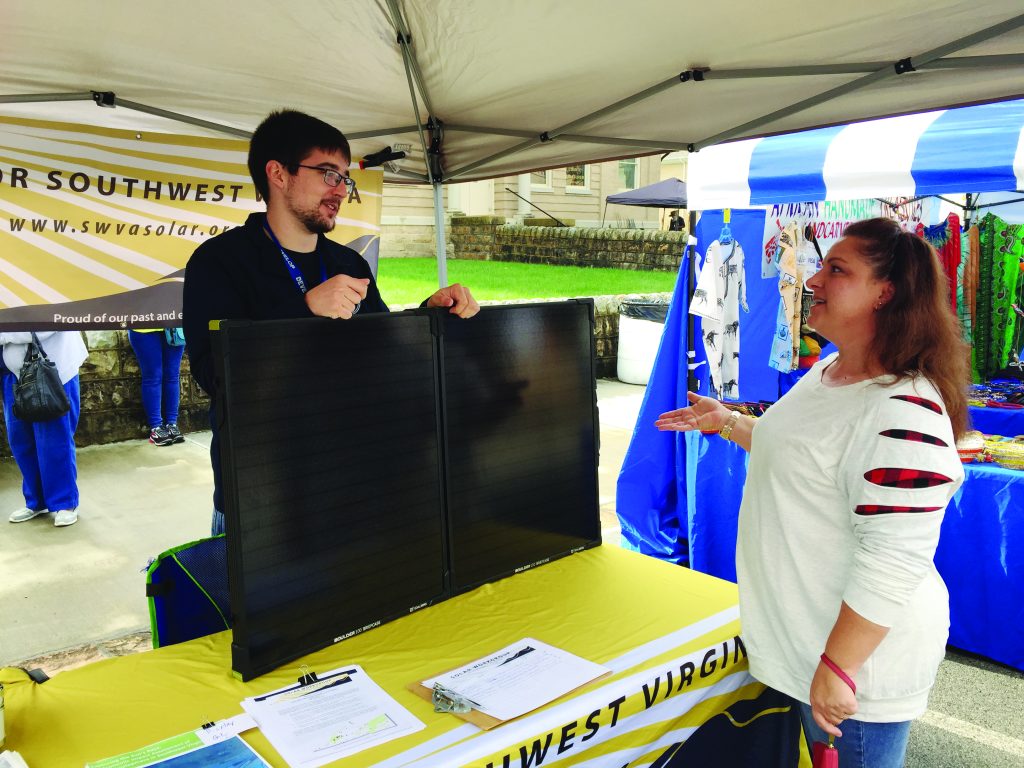One million N.C. households at risk of losing electricity and water during pandemic
CONTACT:
Rory McIlmoil, Sr. Energy Analyst, Appalachian Voices, rory@appvoices.org, (423) 433-9415
Al Ripley, Director, Consumer, Housing and Energy Project, NC Justice Center, al@ncjustice.org, (919) 274-8245
William Barber, III, Environmental Justice Committee Co-Chair, NC Poor People’s Campaign, william.barber.iii@gmail.com, (202) 567-6800
Maria Michalos, Eastern Regional Communications Manager, Natural Resources Defense Council, mmichalos@nrdc.org, (631) 848-1588
Raleigh, N.C. — With the legislature convening next Wednesday, 65 economic, labor, housing, health, social/racial justice and environmental organizations throughout North Carolina, along with 30 businesses and residents are urging state leaders to prioritize public health in the midst of the Covid pandemic and make critical funding available in the budget. The groups sent a letter today to Governor Roy Cooper and legislative leaders requesting that they allocate $400 million of the state’s remaining CARES Act funding for utility bill assistance to help prevent more than 1 million households from losing electricity and water.
In late March, Gov. Cooper implemented a statewide moratorium on utility shutoffs that expired on July 29. The groups are also urging the governor to reinstate shutoff protections specifically for the most financially vulnerable customers, and to require the same protections and repayment options for “unregulated” municipal utility and rural electric cooperative customers as the NC Utilities Commission has afforded to customers of “regulated” utilities like Duke Energy.
“The moratoria on shutoffs required utilities to offer extended repayment plans to the more than 1 million residential customers that have accumulated more than $225 million in utility bill debt over the past several months,” said Rory McIlmoil, Senior Energy Analyst for Appalachian Voices. “However, neither the public health nor the economic crisis has abated, and so those households are still at risk of having their utilities shut off if they can’t keep up with their monthly payments under the new repayment plans.”
As Covid infections were increasing at an alarming rate, the General Assembly adjourned in mid-July with more than $550 million in CARES funding unallocated, even as the household utility bill debt continued to grow and the moratoria were anticipated to expire. The legislature reconvenes next week, and the groups are calling on lawmakers and Gov. Cooper to ensure that $400 million of that funding is immediately allocated to address this growing crisis and protect vulnerable households.
Just this week, the governor announced the provision of $94 million in new funding intended to cover both rent and utility bill assistance, as well as an additional $81 million — some of which may be used to help pay rent and utilities for residents facing eviction. However, taken together these amounts still pale in comparison to the scale of need among households across the state.
“We are very appreciative of efforts from the governor’s office to make some funds available to assist people with utility arrearages,” responded Al Ripley, Director of Consumer, Housing and Energy Affairs for the North Carolina Justice Center. “However, we are very concerned that the need for utility assistance is significantly larger than the funds the Governor has announced, and in order to address this crisis, we need the legislature to appropriate additional funds and the Governor to institute a new shutoff moratorium to protect low-income people that are not able to pay utility bills.”
“Access to stable housing is vital to staying safe during the pandemic and to ensuring a steady economic recovery, said Pamela Atwood, Director of Housing Policy for the North Carolina Housing Coalition. “The utility protections we are asking for ensure people stay housed and are able to access utility services that are necessary for basic cooking, comfort, and health. With the Governor’s announced assistance programs, people need extra time to be able access those resources, and more resources are still needed. The requested protections keep people from falling through the cracks and potential long-term financial devastation as they wait for those programs to be launched.”
The letter further calls on the governor and General Assembly to advance policies that directly address the underlying utility affordability crisis facing low-income households, a problem which, much like the Covid crisis, disproportionately affects Black and Brown people and communities. According to La’Meshia Whittington of Advance Carolina, Black North Carolinians are disproportionately dying from the virus at 34% of the state’s deaths while making up 22% of the population. Hispanic North Carolinians comprise 41% of all positive cases, while making up just 9.6% of the population. Signatories to the letter include many organizations that advocate for social and racial justice, including Advance Carolina, the NC Black and Brown Policy Network, NC Poor People’s Campaign and El Vínculo Hispano, among others.
“The North Carolina Poor People’s Campaign echoes the call for Governor Cooper and the General Assembly to demonstrate true leadership and extend protections for our most vulnerable citizens. Our legacy as a state will depend on our ability to be, rather than seem a state that cares for its people,” said William Barber, III, Environmental Justice Committee Co-Chair for the North Carolina Poor People’s Campaign. “Disproportionate impacts of Covid are real. The fallout from this pandemic are real. Our state’s response must also provide real relief to real people.”
The full list of signatories are included in the letter, and the associated policy and funding proposals can be found online here.
Statements from other signatories
La’Meshia Whittington, Deputy Director, Advance Carolina & NC Black & Brown Policy Network:
“In North Carolina, communities-of-color, essential workers and low-wealth populations have, for years, shouldered the brunt of back-to-back major hurricanes, gerrymanders, dirty corporations and now an increase in disproportionate health impacts due to a pandemic. Black North Carolinians are disproportionately dying from the virus at 34% of the state’s deaths while making up 22% of the population. Hispanic North Carolinians comprise 41% of all positive cases while making up just 9.6% of the population. These are the same communities that will be hit the hardest by utility shutoffs and evictions. It is undemocratic and immoral to leave many North Carolinians alone to face the hardship of sheltering-in-place without a home or without electricity. We urge Gov. Cooper to issue a moratorium on utility shutoffs and immediate funding for utility bill assistance.”
MaryBe McMillan, President, NC AFL-CIO:
“With record numbers of North Carolinians out of work and unemployment benefits expiring, too many families face an impossible choice between buying groceries or paying the electric bill. We urge Gov. Cooper to issue a moratorium on the shutoff of utilities so that jobless workers won’t have to worry about whether their families will have basic services like water or electricity.”
Luis Martinez, Director, Southeast Energy and Climate Program, Natural Resources Defense Council:
“A state budget is a statement of values – and in North Carolina, we prioritize the health, safety and well-being of all our citizens and expect our elected leaders to do the same. If people can’t even wash their hands or keep the lights on, then we’re failing to provide them with even the most basic protections during this ongoing health crisis. How will we even begin to think about rebuilding our economy? Taking these necessary steps will go a long way in helping to protect the most vulnerable North Carolinians.”
Sue Perry Cole, President/CEO, NC Association of Community Development Corporations:
“As an African American woman, I am very aware that the residential debt for unpaid utility bills in NC disproportionately impacts low wealth, elderly/disabled, and Black and Brown residents. Since the impact of structural racism on the socio-economic status of these residents has rendered them more vulnerable to both infection from COVID-19 and mounting utility debts, Governor Cooper should carefully consider the relief sought in the joint letter from various NC organizations and grant extension of the protections and assistance requested for these and other households facing loss of utility services.”
Will Harlan, Sierra Club Senior Campaign Representative:
“Utility shut-offs can be a matter of life or death. Governor Cooper and the General Assembly must act immediately to protect the most vulnerable North Carolinians, who are already disproportionately affected by COVID-19. Shutting off people’s electricity and running water—especially during a pandemic—is cruel, dangerous, unethical, and completely unnecessary.”
###



